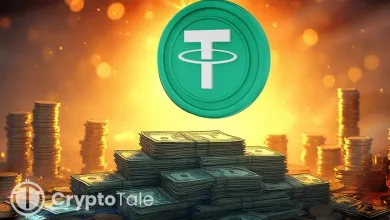Winklevoss Says JPMorgan Blocked Gemini Onboarding Over Fee Dispute

- Tyler Winklevoss says JPMorgan paused Gemini onboarding after his fee criticism.
- JPMorgan introduced fintech data access fees, citing customer protection concerns.
- Open Banking Rule allows free data sharing; JPMorgan’s fees challenge this right.
Tyler Winklevoss, co-founder of the crypto exchange Gemini, has accused JPMorgan Chase of stopping the process of onboarding his company due to his criticism of the bank’s new data access fee policy. This allegation came after Winklevoss published a post on social media platform X on July 19, accusing JPMorgan of trying to “bankrupt fintech” by charging a fee for allowing financial technology firms to use customer bank data.
In a follow-up post, Winklevoss claimed that JPMorgan informed Gemini it would pause the re-onboarding process, which he attributed to his public criticism of the bank’s policy.
This re-onboarding followed Gemini’s earlier removal amid what many in the crypto industry dubbed “Operation Choke Point 2.0.” The campaign, criticized for targeting crypto firms under heightened regulatory scrutiny, reportedly caused several exchanges to lose access to U.S. banking services.
According to Winklevoss, the paused onboarding effort demonstrates a broader attempt by major financial institutions to stifle fintech innovation and prevent consumers from freely accessing their financial data through third-party platforms like Plaid, which Gemini and other exchanges rely on to facilitate fiat funding for crypto purchases.
JPMorgan Defends Fee Changes Amid Regulatory Shifts
JPMorgan has responded to the policy change by stating that the introduction of new fees is intended to protect customer data and ensure transparency. The bank noted that more than 90% of the nearly two billion monthly data access requests it receives from intermediaries do not originate from customer actions.
In a recent statement, JPMorgan emphasized the need to regulate how data aggregators operate within its infrastructure. “Data middlemen access customer data through our secure systems, and charge their clients fees,” the bank explained. “This is not always done responsibly. Our new charging structure ensures data is only shared when consumers request it and that intermediaries operate in a secure data ecosystem.”
The Consumer Financial Protection Bureau’s Open Banking Rule, finalized in late 2024, currently gives users the right to share their financial data via third-party platforms. JPMorgan’s position contrasts with this regulatory direction as the bank and others are reportedly challenging the rule through legal channels.
Related: JPMorgan to Launch Crypto Loans with BTC and ETH in 2026
Gemini’s Regulatory History and Push for Expansion
Over the past several years, Gemini has faced ongoing regulatory and banking challenges. The exchange is reportedly seeking to renegotiate the banking relationship it lost before the most recent onboarding pause as it expands its international operations and prepares for a potential public offering. Earlier in 2025, after a settlement with the Commodity Futures Trading Commission totaling $5 million, the company confidentially filed pre-IPO documents.
Tyler and Cameron Winklevoss, the founders of Gemini, have maintained strong support for pro-crypto regulation under the Trump administration. They have also participated in several White House engagements related to digital asset policy. In his latest posts, Tyler Winklevoss framed JPMorgan’s actions as undermining this pro-innovation mandate.
JPMorgan has made no official statements regarding Winklevoss’s claims, yet the scandal has sparked the issue of access to financial infrastructure that crypto businesses have in the industry. Under the leadership of CEO Jamie Dimon, the bank has been historically skeptical of digital assets but has recently been exploring crypto-backed lending options, an indicator that the company is adjusting its overall blockchain approach.




